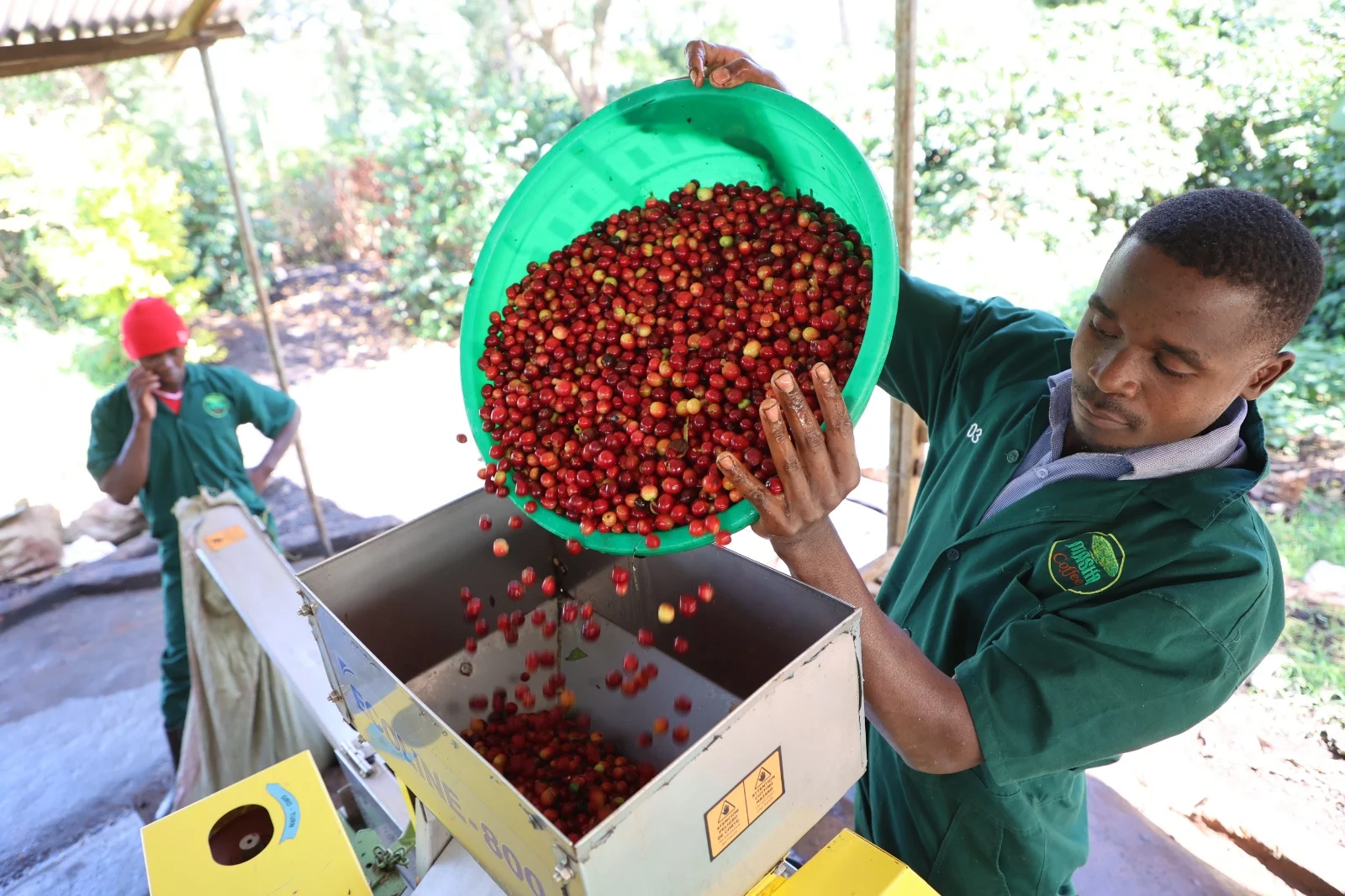Gov’t Explains Drop in Coffee Prices, Blames Global Oversupply and Strong Harvests

The Ugandan government has broken its silence on the sharp decline in coffee prices that has sparked widespread concern among farmers and sector players.
In a detailed statement issued on Sunday, Minister for Agriculture, Animal Industry and Fisheries, Frank Tumwebaze, confirmed the price slump and attributed it to a combination of global market forces beyond Uganda’s control.
According to the minister, a market analysis report shows that current farm gate prices for key coffee types have significantly dropped. Robusta (FAQ) is selling between shs10,000–11,000 per kilogram. Robusta (Kiboko) is ranging from shs 5,000–5,500. Arabica (parchment) is trading between shs 14,000–15,000. Drugar (clean) is at shs14,000.
“Coffee is an internationally traded commodity and is highly susceptible to external shocks, including changes in weather, global production levels, and speculative trading,” said Tumwebaze.
He explained that while prices soared in recent years due to low global yields and high demand—particularly for Robusta—improved weather conditions in key producing countries like Brazil and Vietnam have led to a reversal.
He explained that while prices soared in recent years due to low global yields and high demand—particularly for Robusta—improved weather conditions in key producing countries like Brazil and Vietnam have led to a reversal.
“Brazil’s coffee output is expected to rise by 0.5% to 65 million bags in the 2025/26 season, while Vietnam’s production is projected to grow from 29 million to 31 million bags,” he noted.
“This increased supply has created an oversaturated global market, especially for Robusta, resulting in downward pressure on prices.”
The minister also emphasized the role of futures trading in international markets.
Arabica is mainly traded on the Intercontinental Exchange (ICE) in New York, while Robusta is traded on the London International Financial Futures and Options Exchange (LIFFE).
Traders and producers use futures contracts to hedge against price volatility, while investors speculate based on expected shifts in global supply and demand.
“Currently, global coffee production is forecast to hit a record 178.7 million bags, up by 4.3 million from the previous year,” said Tumwebaze, citing the USDA World Markets and Trade Report – June 2025. “This includes record output from Ethiopia, Vietnam, and Indonesia, offsetting losses in Brazil and Colombia.”
At the same time, global exports are projected to rise by 700,000 bags to 122.3 million, while consumption is forecast to reach a record 169.4 million bags—not enough to offset the supply glut.
Tumwebaze acknowledged the distress the falling prices have caused for Ugandan farmers but reiterated that the government is closely monitoring the situation and exploring long-term solutions to cushion growers from such global shocks.



0 Comments